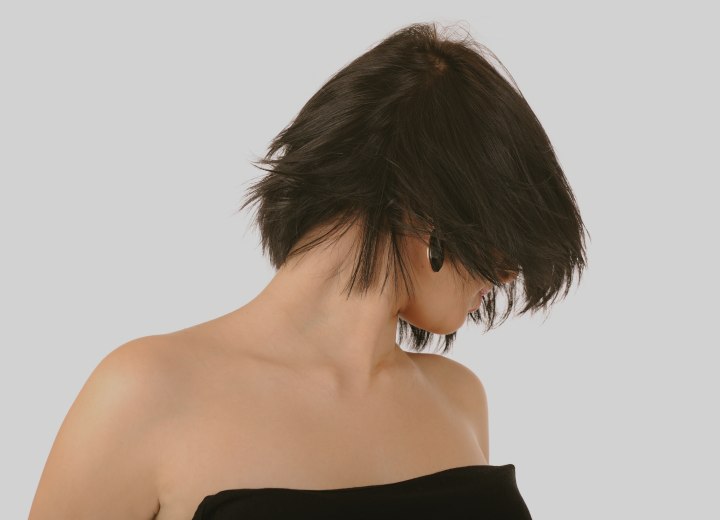Dye, Hormonal Changes & Hair Loss

I do not excessively dye my hair; at most once a month usually every 2-3. I've stopped dying my hair for about 6 months, and it stills seems to be falling out, but my hair seems relatively healthy and shiny. My parents say it might be hormones since I'm going through a rather bad acne as well.
Also I'm considering going to my natural color, but do not want to damage it with harsh bleaches and such that might cause it to fall out more. What could I use that is gentle and could bring my color back fairly quickly?
Having said that, I should also tell you that your parents may be right as well; hormonal changes can result in hair loss. In both cases, one of the things that can happen is that the hair follicles can be affected causing the hairs to transition from the growth phase to the shedding phase. Particularly with hormonal changes, you may not experience hair loss until months after the effect has begun. (This is also true of cases where your hair follicles are reacting to chemicals applied to the hair.)
Discontinuing the hair color is probably a good idea. It won't hurt anything to stop, and if it is the source of the problem you will have eliminated it. However, if the hair loss is hormonal and is part of your normal adolescent development, you may not see your hair return to its normal level of density until months after your body chemistry reaches its adult balance. Even then, you may never have the same density of hair as you did in your early teens.
I do want to point out that all of my advice and information here is anecdotal, based on my experience with clients and research that I’ve done. If your hair continues to thin, I urge you to see your physician or dermatologist to see if perhaps you can determine the cause of the loss, and hopefully treat it. I’m not a medical professional and not qualified to give you medical advice.
I am qualified to offer aesthetic advice, and as to the aesthetics question of trying to lighten your dyed hair to it’s original color, I have to disappoint you. Because permanent hair color penetrates into the hair shaft and deposits color molecules into the hair’s structure, you can’t simply apply a lightening agent and remove the color without removing the hair’s natural color as well.
There are products designed to remove semi- and demi-permanent colors from the hair and leave the natural color, but the products designed to remove permanent hair color invariably strip away the natural color as well. Most people who’ve used the permanent color removers report that they are left with a flat, beige-looking color that must be re-tinted to look natural again.
My recommendation is to do one of two things. Either go to a salon and look into having your hair done to a color that is similar to your natural shade or use a temporary hair color to keep the black look while your natural color grows out.
Trying to lighten your hair at home is not recommended in your case because you will be trying to lift your hair color from black, which can have unpredictable results, depending on the base color of the black dye. You are far better off, seeking a professional’s services for this procedure.
©hairfinder.com
See also:
Hair loss
The hair growth phases
Hair colors and coloring
